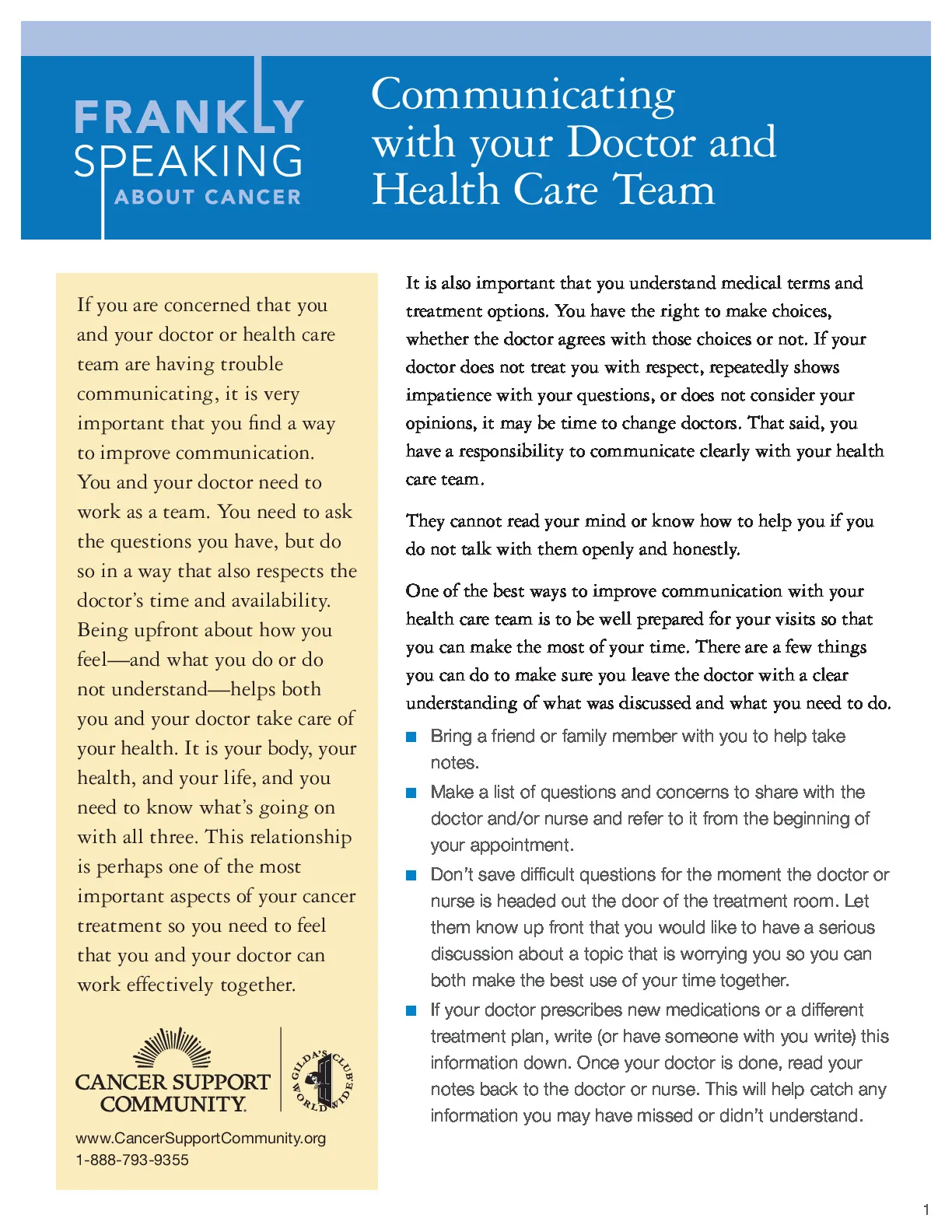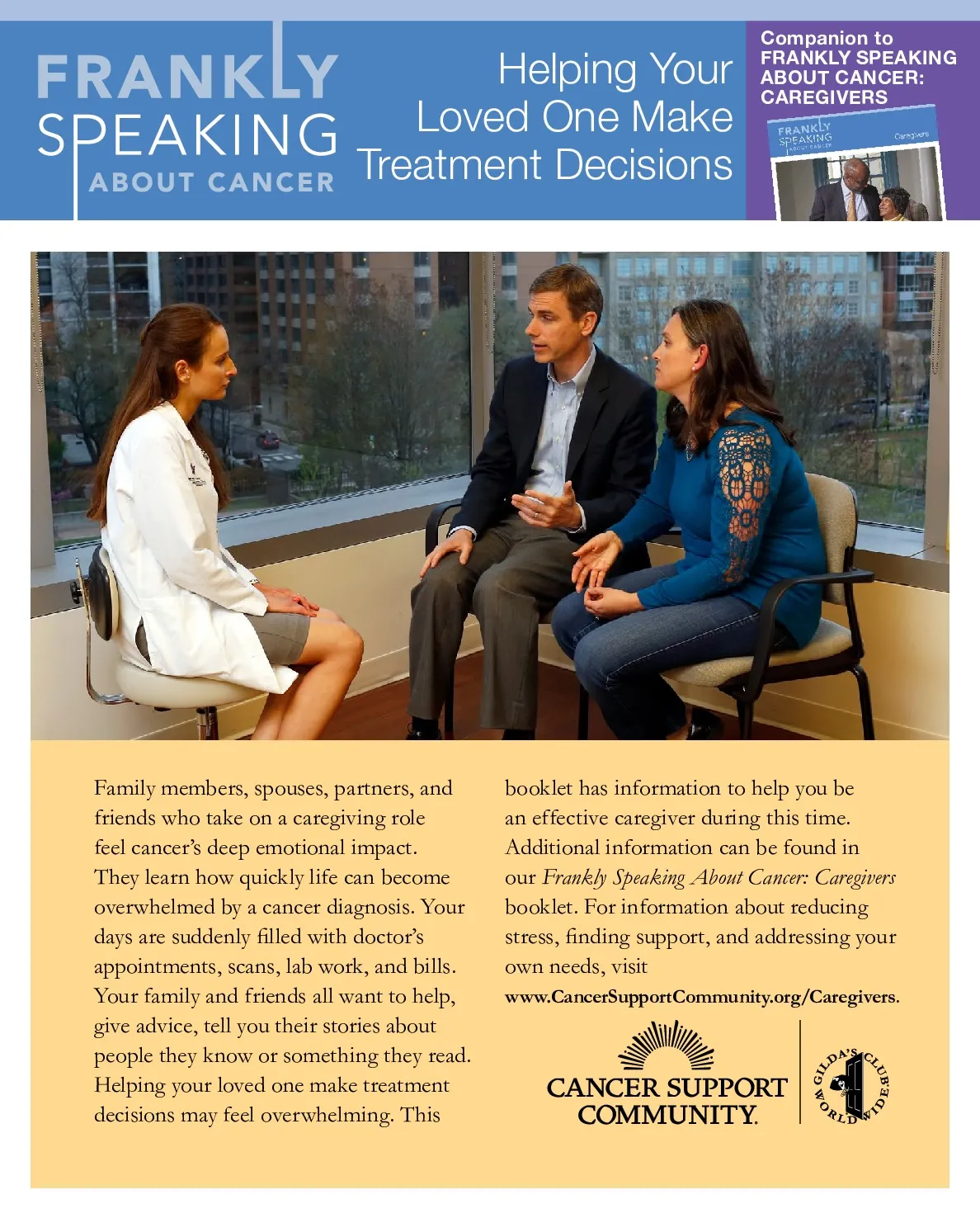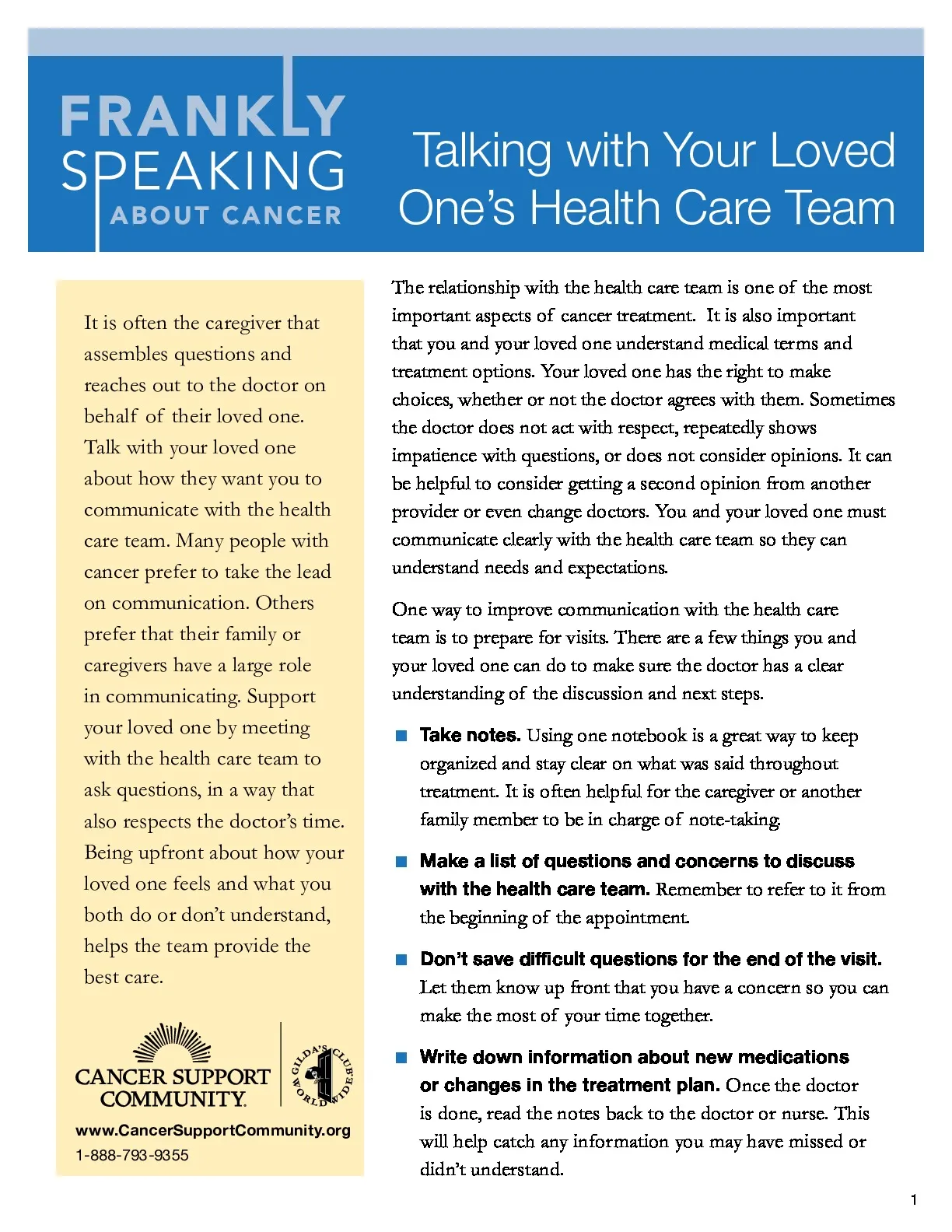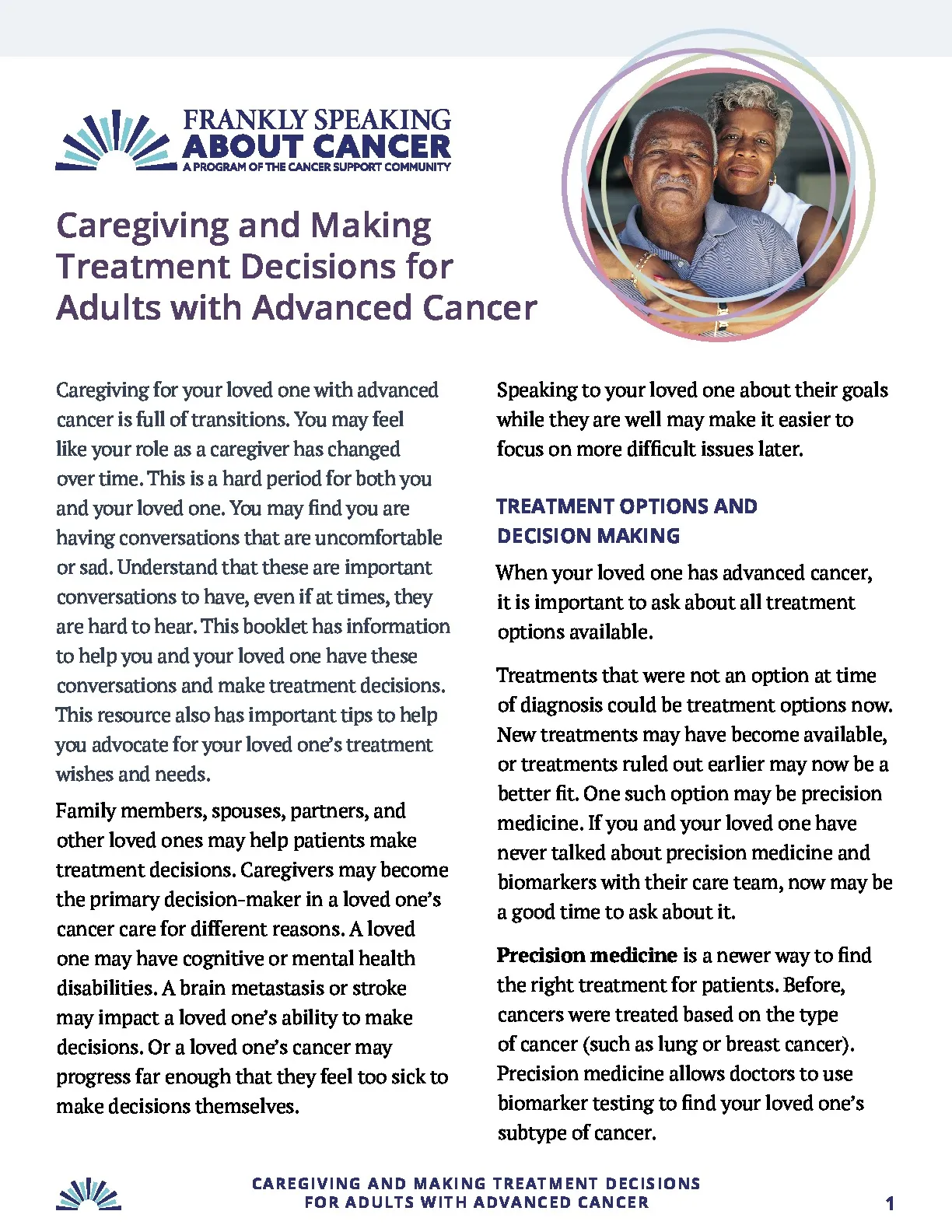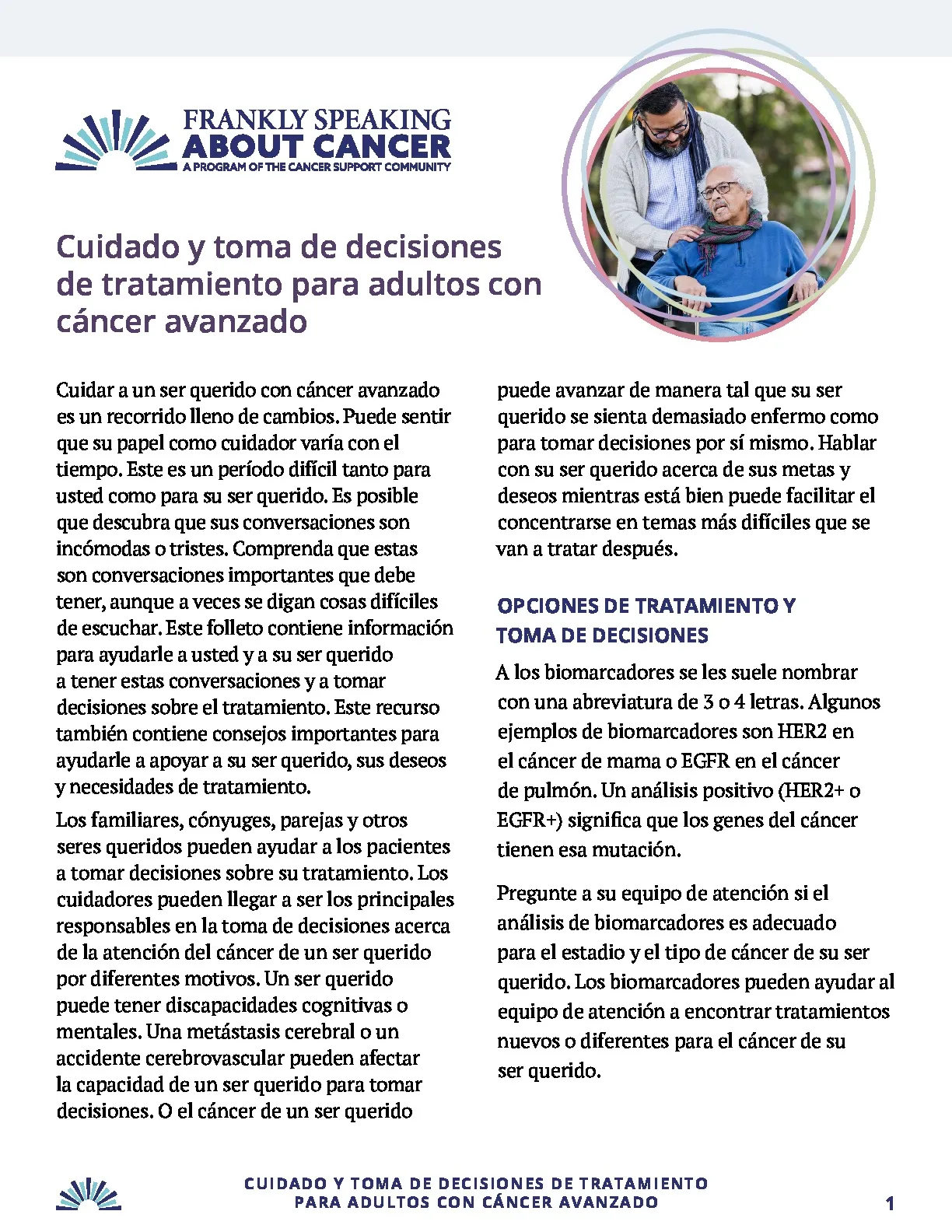Manage the Treatment Decision Process
Table of Contents
Understand Your Needs
When you are diagnosed with cancer or are facing a recurrence, it is natural to feel lost in the process. But this is actually a very important time to think about who you are and what your goals are in life.
Make sure you consider the following factors when making a treatment decision:
- Your age
- Your stage in life, including your family and work situation
- Your overall health
- Your expectations for treatment
- Your information needs
- Your available resources and support
- Logistics (such as transportation)
- Cost
What you can do:
- Communicate with your treatment team. Let them know what is important to you.
- Communicate with your family, friends, and colleagues. Let them know what you want and need.
- Talk to people who have been in your shoes.

Make a Treatment Decision That’s Right for You
For free decision support counseling, consider the Cancer Support Community’s Open to Options® program.
Understand Your Cancer
Knowing the exact kind, stage, and subtype of your cancer will help you find useful information and make treatment decisions.
What you can do:
- Ask your doctor to tell you exactly what kind of cancer you have and write it down for you. Don’t hesitate to ask questions if you don’t understand something.
- Ask for a copy of your pathology report, and for results of your lab work and tests.
- Ask your doctor what their treatment recommendations are based on.
- Take someone with you to your appointments to listen and take notes.
Questions to ask about treatment options include:
What is the goal of treatment?
What are the benefits and risks of each treatment?
Are clinical trials an option?
How can we manage or prepare for side effects associated with the treatment?
Communicating With Your Doctor
Follow these tips to communicate clearly with your doctor and health care team.


Choose Your Treatment Team
One of the most important decisions you will make about your cancer treatment is choosing a doctor, a treatment team, and a cancer center that has the expertise to treat your cancer.
What you can do:
- Find out if your doctor specializes in treating your type of cancer.
- Find out if your cancer center offers clinical trials.
- Ask your doctors about the best way to reach them. Do they have an oncology social worker or navigator available?
Make a Treatment Decision
When making a treatment decision, consider factors like your goals for treatment, the potential benefits and side effects of treatment, your reasons behind the treatment choice, and the cost of treatment.
What you can do:
- Ask to sit down with the financial counselor at the cancer center.
- Take advantage of resources.
- Understand that things will change.
- Try to stay focused on what is happening now rather than trying to make all the decisions at once.
Making Treatment Decisions as a Caregiver for Someone With Advanced Cancer
Watch this quick guide to learn more about supporting loved ones with advanced cancer through the treatment decision-making process.
Identify Your Support Network
Your friends and family can be a source of support as you make treatment decisions. Think about how you would like to involve them in your care.
Your loved ones and care team can help you in advance care planning. Advance care planning is the ongoing process of making decisions of what a person wants. When talking with your loved one about advance care planning, consider your goals and values.
One of the most important parts of advance care planning is making sure the plan is updated and shared with relevant people. Talk to your loved one and your care team about completing an advance directive. An advance directive is a legal document that is used to make medical decisions if you are unable to make decisions.
What they can do:
- Come with you to appointments to take notes, ask questions, and provide emotional support.
- Advocate for your needs and treatment goals.
- Be your durable power of attorney for health care. You can choose a person to make your medical decisions if you are unable to do so.
Take One Step at a Time
Break the treatment-decision process into small steps by following these tips:
Think about who you are, your goals, and your life situation.
Work with your doctor to develop a written treatment plan.
Remember that nurse practitioners, nurses, social workers, and navigators are there to help you.
Be selective about the information you find. Use proven, reliable sources.
Benefit from other people’s experience, but don’t assume your experience will be like theirs.
Frankly Speaking About Cancer Library
LibraryWould you like a print copy of these educational materials?
We can mail our Frankly Speaking About Cancer pieces to you. Shipping is free for up to 20 pounds.

